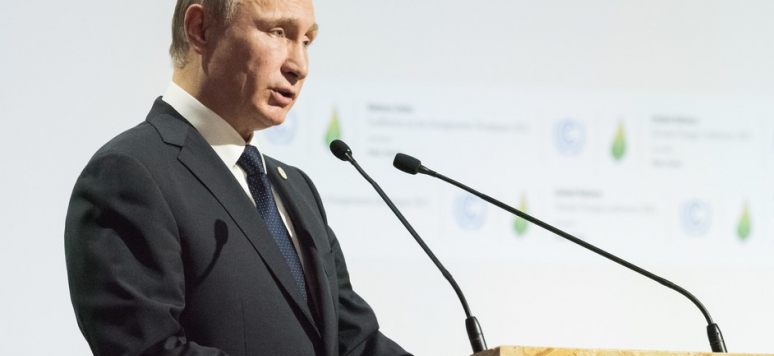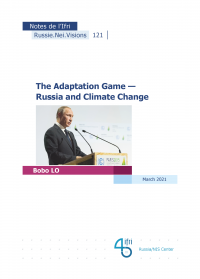
The Adaptation Game — Russia and Climate Change Russie.Nei.Visions, No. 121, Ifri, March 2021
Russia is an outlier in the international consensus on climate change.

On the one hand, it formally recognizes that global warming poses a threat to the planet and to Russia in particular. On the other hand, there is no sign of any serious commitment to reduce carbon emissions or develop renewable sources of energy. Fossil fuels remain at the heart of the Kremlin’s vision of Russia as a global economic actor and great power.
Events are intruding to disturb official complacency — the thawing of the permafrost, more frequent extreme weather events, heightened public consciousness, and moves toward decarbonization in Europe and Asia. Nevertheless, the Russian government continues to hold the line. Its climate “adaptation policy” is largely intended for show, and denies the need for substantive change or hard choices.
Russia’s transition to a post-carbon economy seems improbable today. However, it should not be discounted entirely. Faced with the threat of being left behind by the 21st century energy revolution, decision-makers may eventually be forced to recognize that Russian climate policy is unsustainable — environmentally, economically and, above all, strategically. If and when change comes, it is unlikely to be smooth or coherent.
Bobo Lo is an Associate Research Fellow with the Russia/NIS Center at the French Institute of International Relations (Ifri).


